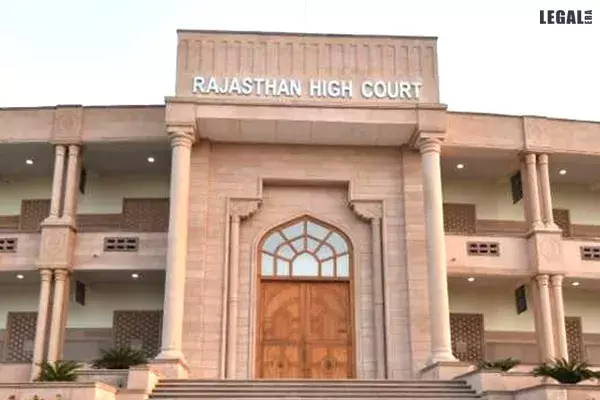Rajasthan High Court Rules That Failure To Name Arbitrator In Legal Notice Does Not Invalidate Arbitration Invocation
Dr. Justice Nupur Bhati of the Rajasthan High Court has affirmed that invoking an arbitration clause requiring the naming;

Rajasthan High Court Rules That Failure To Name Arbitrator In Legal Notice Does Not Invalidate Arbitration Invocation
Dr. Justice Nupur Bhati of the Rajasthan High Court has affirmed that invoking an arbitration clause requiring the naming of an arbitrator is valid under Section 11 of the Arbitration and Conciliation Act, 1996, even if an arbitrator is not explicitly named in the legal notice. The court emphasized the principle of minimal judicial interference in arbitration matters.
On January 11, 2023, the petitioner and respondent entered into a registered lease deed granting the petitioner possession of the 5th and 6th floors of Chetak Mall in Udaipur. After the petitioner took possession on May 1, 2023, the respondent allegedly tried to create third-party rights over the leased premises and removed the petitioner's signage. In response, the petitioner invoked the arbitration clause in Clause 12.10 of the Lease Deed via a legal notice on June 2, 2023.
Subsequently, the petitioner sought interim relief under Section 9 of the Arbitration and Conciliation Act, 1996, from the Commercial Court in Udaipur, which ordered the respondent to maintain the status quo. When the respondent failed to comply, the petitioner filed an application under Section 11(6) of the Act to appoint an arbitrator.
Citing the Supreme Court’s ruling in Cox & Kings Ltd. v. SAP India Pvt. Ltd., the court highlighted that the essential requirement under Section 11 is the prima facie existence of an arbitration agreement. The court confirmed that the lease deed included a valid arbitration clause (Clause 12.10), establishing the arbitration agreement's existence. The legal notice from the petitioner was considered a valid invocation of the arbitration clause, even without naming a specific arbitrator.
The court referenced the Supreme Court's judgments in BSNL & Anr. v. Nortel Networks India (P) Ltd. and NTPC Ltd. v. M/S SPML Infra Ltd., which assert that judicial interference under Section 11 should only occur when an application is clearly time-barred, dead, or lacks a subsisting dispute, all of which were not applicable here.
The court reiterated that minimal judicial interference is a guiding principle, allowing only a prima facie determination at this stage. A valid arbitration agreement was confirmed to exist between the parties, invoked through the petitioner’s legal notice.
In conclusion, the court allowed the application and appointed former Chief Justice Shri. Prakash Chandra Tatia as the sole arbitrator to resolve the dispute.



